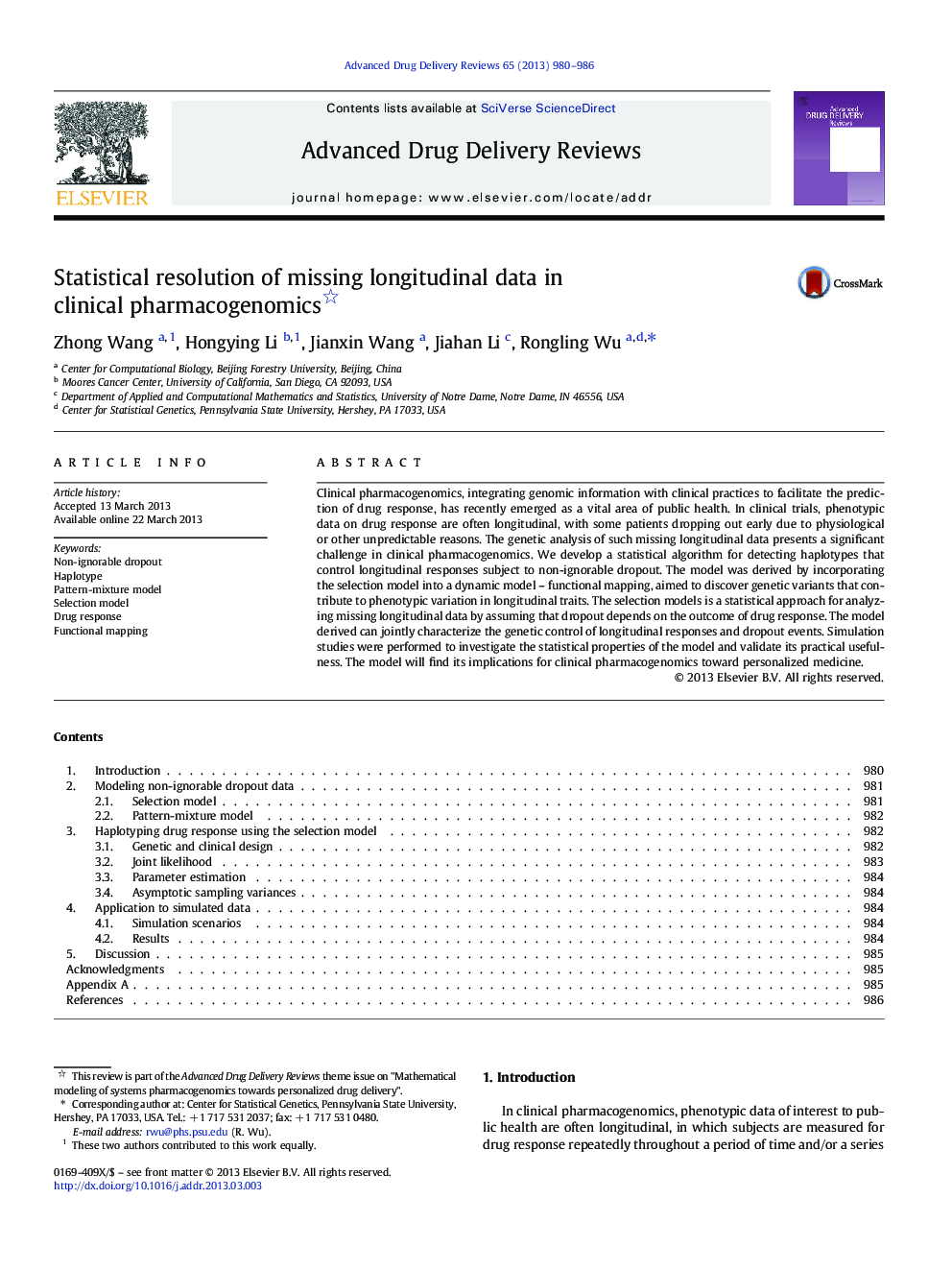| Article ID | Journal | Published Year | Pages | File Type |
|---|---|---|---|---|
| 2072124 | Advanced Drug Delivery Reviews | 2013 | 7 Pages |
Clinical pharmacogenomics, integrating genomic information with clinical practices to facilitate the prediction of drug response, has recently emerged as a vital area of public health. In clinical trials, phenotypic data on drug response are often longitudinal, with some patients dropping out early due to physiological or other unpredictable reasons. The genetic analysis of such missing longitudinal data presents a significant challenge in clinical pharmacogenomics. We develop a statistical algorithm for detecting haplotypes that control longitudinal responses subject to non-ignorable dropout. The model was derived by incorporating the selection model into a dynamic model – functional mapping, aimed to discover genetic variants that contribute to phenotypic variation in longitudinal traits. The selection models is a statistical approach for analyzing missing longitudinal data by assuming that dropout depends on the outcome of drug response. The model derived can jointly characterize the genetic control of longitudinal responses and dropout events. Simulation studies were performed to investigate the statistical properties of the model and validate its practical usefulness. The model will find its implications for clinical pharmacogenomics toward personalized medicine.
Graphical abstractFigure optionsDownload full-size imageDownload high-quality image (178 K)Download as PowerPoint slide
